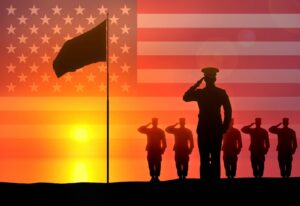Please note: This trial has finished recruiting and is not accepting new participants.
Research Center: University of Washington
Location: This study is conducted 100% by phone
Co-Principal Investigators: Denise D Walker, PhD and Debra L Kaysen, PhD
IRB Committee: This study has been reviewed and approved by University of Washington Institutional Review Board and by the U.S. Department of Defense Human Research Protection Office
Background
 Symptoms of post-traumatic stress negatively affect the health, well-being, and quality of life of U.S. military service members.
Symptoms of post-traumatic stress negatively affect the health, well-being, and quality of life of U.S. military service members.
Many service members do not seek treatment for these symptoms. There are a variety of reasons why they might not seek treatment, like concerns about what other people may think, worries about how it may affect their service record, and challenges with finding the right type of support. Researchers at the University of Washington are hoping that this new resource called UW Stress Check can help by facilitating a discussion about the ways in which trauma affects the lives of service members and ways to help service members live the life they want to live.
The purpose of the UW Stress Check study is to look at different ways of supporting members of the U.S armed forces (Soldiers, Airmen, and Sailors) who have questions or concerns about symptoms of post-traumatic stress. The UW Stress Check is an option no matter what type of trauma it was or how long ago it happened. If this resource is effective in helping service members reclaim their lives, we believe it could become a valuable resource to help members of the U.S. armed forces across the country.
Why Participate?
- You will have the opportunity to discuss your thoughts about your reactions to a traumatic event and explore treatment and support options with a non-military provider.
- Everyone will receive information about treatment and support options.
- Your officers will NOT be notified of your involvement in the project and WILL NOT have access to information about anyone who calls and/or participates in the project.
- You will have the option to participate in the study either confidentially or anonymously. Protecting your privacy is our top priority.
- Study participation is 100% by phone. If eligible, you will complete 5-8 phone calls over a 7-month period.
- You may receive up to $200 for participating in this study.
- You will be helping to advance medical research.
Your Rights
- Your participation in the study is completely voluntary, meaning that you can stop participating at any time. You can also decide not to answer any questions you don’t want to answer.
- Your records relating to this study and any other information received will be kept confidential and in accordance with state and/or federal law. Only UW Stress Check team members will have access to your information.
Who Can Participate?
- Individuals aged 18 and older
- U.S. soldiers, airmen, and sailors at any duty station in the U.S.
- Experienced a traumatic, violent, and/or life-threatening event at any point in your life (i.e., childhood, civilian, and/or military)
- Experience symptoms of post-traumatic stress, such as nightmares, feeling jumpy, feeling like you can’t stop thinking about the event, trying to avoid reminders of the event, and/or feeling emotionally numb
Please note: Your privacy is of top priority. Any information disclosed in this study will not be reported to your officers.